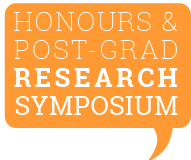

21 November 2023
3pm AEDT | 2:30pm ACDT |5pm NZDT |
2pm AEST | 1:30pm ACST | 12pm AWST
In the world of science communication research, it’s not often that students find a platform to present their findings, especially if they’re not pursuing a PhD. Building on the success of last year, we’re championing these budding researchers by hosting our annual symposium. This is our endeavour to bolster the SciComm community, providing a unique stage for students from both Australia and Aotearoa, New Zealand to share their insights with their peers.
While students undoubtedly refine their skills through research, it’s the broader SciComm community that stands to gain the most, staying abreast with the latest data to enrich our practices.
Our annual event isn’t just a showcase; it’s a commitment to nurturing confidence in our students and offering the community a timely glimpse into ANZ research. All presentations will be recorded and made available on the ASC YouTube page. This serves a dual purpose: it not only keeps the community informed but also provides students with a valuable asset to showcase their presentation prowess—a trait increasingly recognised as invaluable in our field.
We invite you to spread the word. Let your colleagues, networks, and anyone with a vested interest know about this enriching, free event.
We are also very excited that our host for the symposium will be Jo Savill, senior science communicator at the Australian Research Data Commons (ARDC).
PROGRAM
21 November 2023
3pm AEDT | 2:30pm ACDT | 2pm AEST | 5pm NZDT | 1:30pm ACST | 12pm AWST
| 3:00pm AEDT | Symposium begins |
| 3:10pm AEDT | Communicating Science: Is it Time for a More Anthropological Approach? Chris Ellis (PhD student, The University of Sydney) There is an increasing pessimism of science communication as science attempts to define origins of the universe, life and consciousness. Science communication is essential in order to mobilise people to act against some of humanity’s most pressing problems, including climate change, but it may have trouble achieving this if it does not take a more anthropological approach. |
| 3:35pm AEDT | Musical NMR: Building a Molecular Ensemble Jake Willett (Masters of Science (Physics), The University of Melbourne) Nuclear Magnetic Resonance (NMR) is a staple in the molecular imaging world and is the foundation of MRI. It is an inherently quantum mechanical phenomenon which is often hard to understand. HOWEVER, there is a connection between NMR and music: a more familiar topic, that may help in bridging the gap between the micro and macro world. |
| 4:00pm AEDT | Comparing COVID-19 Vaccine Information in Indonesian and Singaporean Online News Priscilla Seah (Master of Science Communication, ANU) Comparing how COVID-19 vaccine information was presented in two vastly different countries in terms of their COVID-19 management, secularity, and cultures. Did religion themes dominate, or were news media articles more scientific-based? What perspectives were emphasised? How did news media in these countries convince the public to take the vaccine and counter hesitancy? |
| 4:30pm AEDT | From 2D to 4D: Reconstructing a Giant Extinct Aussie Amphibian Jack O’Connor (PhD student, Monash University) Can 2D skeletal illustrations inform 4D locomotion animations? This talk outlines how I developed a novel procedure in 3D modelling software to recreate the morphology of one of Australia’s few described Jurassic vertebrate species; Siderops kehli. The resulting animated asset provides insight into the lifestyle of this giant Australian amphibian through the lens of science communication. |
| 4:55pm AEDT | Changing environmental behaviours, using ABC’s War on Waste as a case study Rachael Vorwerk (Master of Communication, RMIT) Non-preachy tone. Relatable contexts. Step-by-step how to’s. Targeting consumers, businesses and government. What exactly was it in ABC’s War on Waste that led to such widespread change in Australia? Learn about new insights and practical tips on how we can use communication strategies to change behaviour at scale. |
| 5:30pm AEDT | Symposium ends |
To enhance accessibility and promote ongoing learning, all presentations will be recorded and uploaded to the ASC YouTube channel. This serves two purposes: it keeps the broader community informed about the latest developments in our field, and it provides our students with a valuable platform to demonstrate their presentation skills—a key attribute in academic and professional environments.
Join us to engage with pioneering research and support the next generation of scholars.
We look forward to your participation in the symposium!
Last year’s symposium
The symposium was run for the first time last year.
Last year’s presentations are now available in this playlist.
